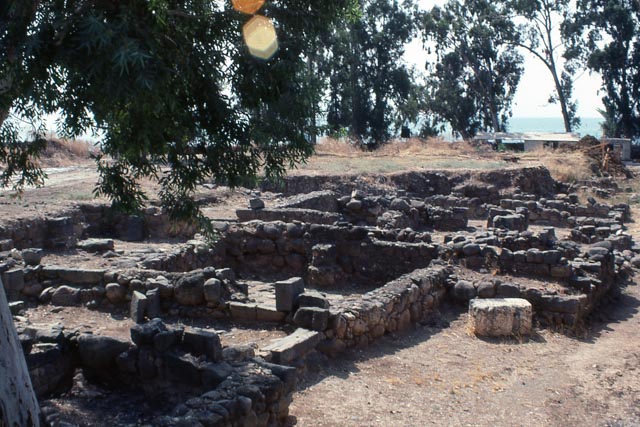
Growing old is not for whimps! Aches and pains beset us. Hair falls out (or worse grows where it doesn’t belong). Joints ache only to be replaced. Foot troubles, tooth troubles, cataracts, dark spots, bladder trouble, heartburn, suspicious moles and let’s not talk about cancers, heart trouble, or diabetes. Our bodies are starting to wear out.
The ancient Romans and Greeks acknowledged this in their letters. Latin letters begin with the proclamation “Salve!” (health) followed by inquiries after the recipient’s health, while Greek letters often conclude with rhonnumi (ῥώννυμι), “be in good health, farewell, goodbye.”
Early Christians closed their letters the same way (Acts 15:29), but then began expanding their conclusions. Ignatius of Antioch wrote a series of letters to various churches as he was led to Rome to be martyred (about 108 A.D.). He closed his epistles with the traditional “be in good health,” but then explained the source of true health (“Good health in God the Father and in Jesus Christ,” IEph 21:2; “Good health in Jesus Christ,” ITr 13:2; “Good health in Christ Jesus our common hope,” IPhld 11:2; “I bid you good health in the power of the Father,” ISm 13:1; “Good health in the Lord,” Ignatius to Polycarp 8:3.) He also stresses how caring for our health gives us the strength that we need to persevere to the end: “Good health to the end, in the patient endurance of Jesus Christ” (Ignatius to the Romans, 10:3).
As children of God, we should take care of the bodies the Lord has given us. After all, Paul says, our bodies are the Temple of the Holy Spirit (1 Corinthians 6:19; 3:17). This runs counter to the feelings of many people – even some Christians. Some feel the “flesh” is evil and should be punished. The Apostle Paul warned the Colossians:
Why, as if you were still alive in the world, do you submit to regulations— “Do not handle, Do not taste, Do not touch” (referring to things that all perish as they are used)—according to human precepts and teachings? These have indeed an appearance of wisdom in promoting self-made religion and asceticism and severity to the body, but they are of no value in stopping the indulgence of the flesh (Colossians 2:20 – 22).
Rather, we are told to “Glorify God in your body” (1 Corinthians 6:20).
Of course, some people can’t be bothered. “Dust to dust,” they say as they sit idly by stuffing themselves with snack food and downing “brown, fizzy water” (or worse). Many were taught their bodies are like spacesuits of the soul. One day we’ll take off the spacesuits and our souls will be free, but is that true? After all, Jesus was resurrected. He didn’t abandon his body in the grave. It was changed. Paul told the Corinthians, “We shall all be changed.”
I tell you this, brothers: flesh and blood cannot inherit the kingdom of God, nor does the perishable inherit the imperishable. Behold! I tell you a mystery. We shall not all sleep, but we shall all be changed, in a moment, in the twinkling of an eye, at the last trumpet. For the trumpet will sound, and the dead will be raised imperishable, and we shall be changed. For this perishable body must put on the imperishable, and this mortal body must put on immortality (1 Corinthians 15:50 – 53).
I’m looking forward to that new body! This one is beginning to show its age!










